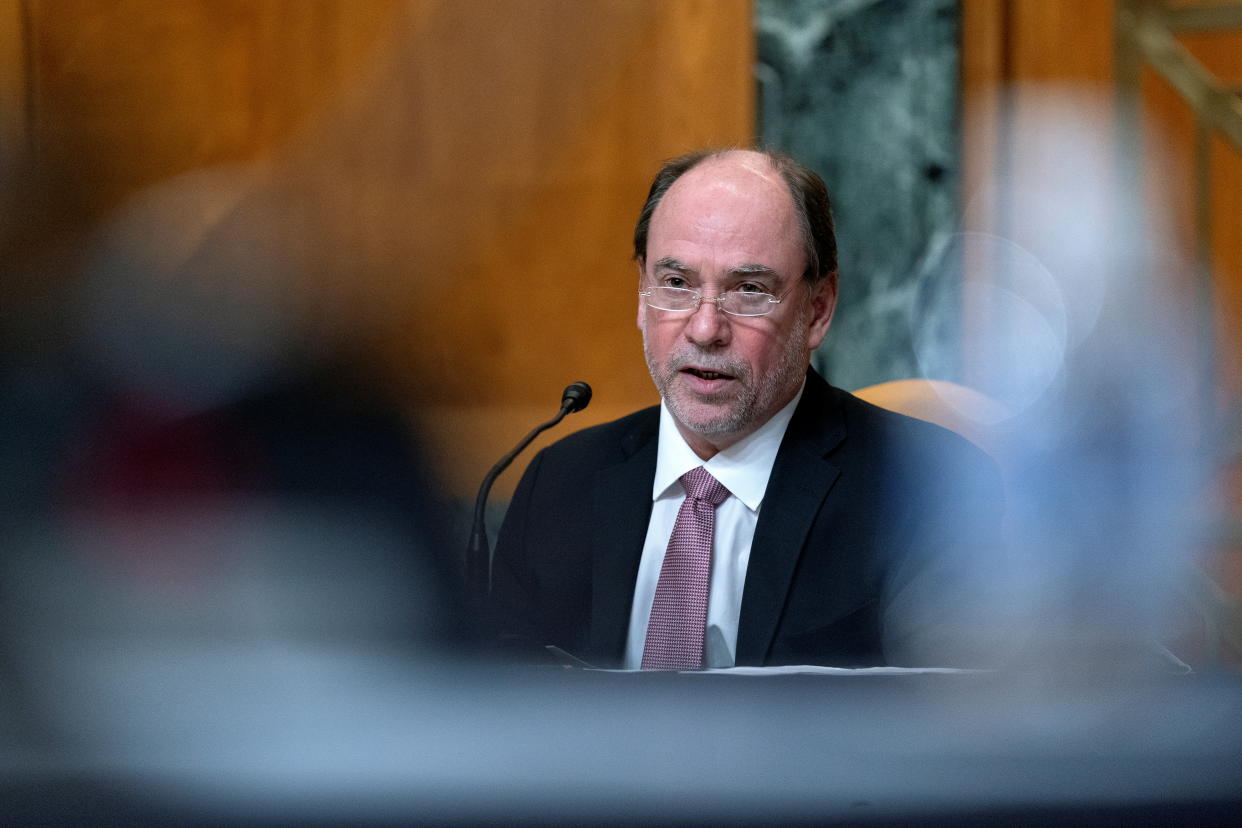Biden's plan 'doesn't hang together,' GOP economist says
A key Democratic selling point of the new Build Back Better framework announced Thursday is that it’s fiscally responsible.
“It’s fully paid for,” President Biden declared in a press briefing about the plan. “Over the next 10 years, it will not add to the deficit at all.”
The White House summary of the bill goes even further and suggests the bill will actually reduce the deficit. On the spending side of the ledger, the president is pushing for $1.75 trillion in new spending offset by “up to a total of” $1.995 trillion in new revenue coming from things like new taxes and new funding for the IRS to chase down delinquent taxpayers.
But Douglas Holtz-Eakin, president of the American Action Forum and former top economic advisor to former President George W. Bush and Sen. John McCain, says that what’s on paper and what is likely to actually transpire over the coming decade are likely to be two very different things.
“It doesn't hang together fiscally,” he told Yahoo Finance.
He said Democrats have “tried to reduce the top-line costs of the bill by front-loading the spending” noting as one example that the bill a one year extension of the expanded child tax credit followed by the overall bill being paid for over 10 years.
An earlier version of the bill included a longer extension of the child tax credit and Democrats have expressed a desire to make the credit permanent.

It's widely expected that Democrats will move to make the expanded credit permanent after the current one-year extension; Holtz-Eakin said the maneuver “is fooling nobody” and the result would likely be deficit spending when all is said and done.
The framework also includes other provisions that are set to expire rather quickly, but could also prove politically popular and hard to kill once Americans get used to them. For example, a provision for free preschool for every 3- and 4-year-old expires after two years.
“You've got front-loaded spending with the taxes at the back end,” Holtz-Eakin said. “That's a macro risk that's shaping up as they put this into play.”
‘Not particularly attractive policy’
The $1.75 trillion framework announced Thursday included funding for preschool funding, limiting child-care costs for some families; around half a trillion dollars toward combating climate change; and an extension of expanded health care tax credits.
At the same time, other programs like free community college, paid family leave, and a climate program known as the CEPP, were dropped from the package.
Holtz-Eakin called a new minimum tax on corporations to pay for the bill “not particularly attractive policy.”

He said he was also concerned that “it's being done in this party line fashion that really no one has any buy-in on the Republican side.”
In another Yahoo Finance appearance on Thursday, Biden aide Heather Boushey acknowledged that Republicans aren’t likely to support the bill, but she thinks they should because “this package is popular with the American people.”
She also argued the bill would pay for itself based on the “fulsome set of revenue raisers.” “All of these pieces are in there and we can certainly pay for this package, that is well within Congress's ability,” Boushey said.
Holtz-Eakin said he thinks the entire reconciliation process, which allows certain types of bills to pass the Senate with 50 votes instead of the usual 60-vote threshold, need to go at this point.
The reconciliation process has been used by both parties – the final pieces of President Obama’s Affordable Care Act and President Trump’s Tax Cuts and Jobs Act of 2017 are two examples. It “was intended for budgetary purposes to enable Congress to do tough things like raise taxes and cut spending," Holtz-Eakin said, but now "is being abused and the procedures really should just be eliminated.”
Ben Werschkul is a writer and producer for Yahoo Finance in Washington, DC.
Biden economic advisor: Progressives 'need to take this win'
Here's what's in the $1.75 trillion framework Biden is pitching to Congress
How the White House is trying to shake off the loss of a key climate provision
Read the latest financial and business news from Yahoo Finance
Follow Yahoo Finance on Twitter, Facebook, Instagram, Flipboard, LinkedIn, YouTube, and reddit.
